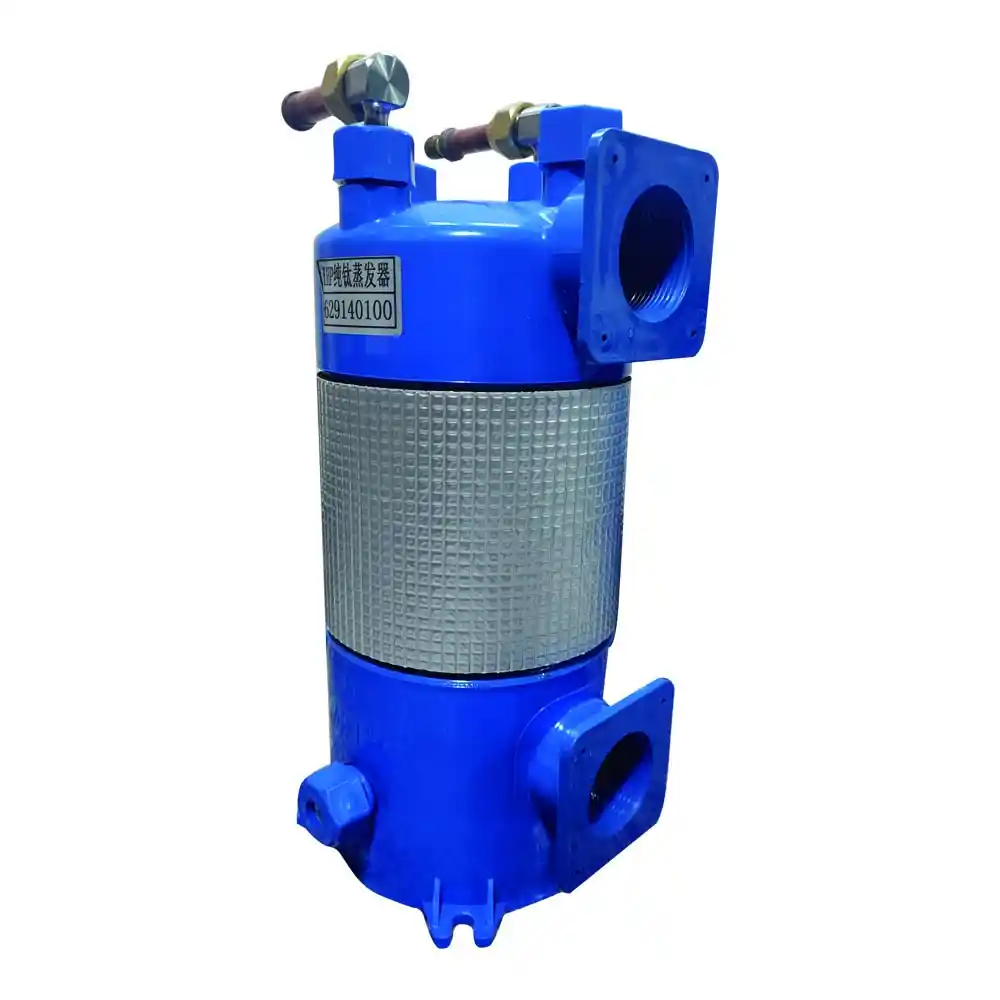1. Introduction
Solar thermal systems harness the power of sunlight to generate heat for various applications, including water heating, space heating, and industrial processes. The efficient conversion of solar energy into usable heat relies on the effective transfer and management of thermal energy within the system. Titanium Coil Heat Exchangers have emerged as a key component in solar thermal systems, offering numerous advantages that enhance their performance and overall efficiency.
2. The Role of Titanium Coil Heat Exchangers in Solar Thermal Systems
Titanium Coil Heat Exchangers play a crucial role in solar thermal systems by facilitating the transfer of heat between the solar fluid and the desired application. They are specifically designed to optimize heat transfer efficiency, ensuring maximum energy extraction from sunlight. Let’s explore the benefits and applications of Titanium Coil Heat Exchangers in solar thermal systems.
3. Advantages of Titanium Coil Heat Exchangers in Solar Thermal Systems
Integrating Titanium Coil Heat Exchangers into solar thermal systems brings several advantages that contribute to their overall effectiveness:
3.1 High Thermal Conductivity
Titanium exhibits excellent thermal conductivity, enabling efficient heat transfer between the solar fluid and the working fluid. This characteristic ensures that a maximum amount of heat is transferred from the solar collectors to the intended application, improving the overall energy conversion efficiency of the system.
3.2 Corrosion Resistance
Solar thermal systems often employ heat transfer fluids that are chemically aggressive or corrosive. Titanium’s exceptional corrosion resistance makes it an ideal material for the construction of heat exchangers in such environments. It ensures the longevity and durability of the heat exchanger, minimizing maintenance requirements and optimizing system performance.
3.3 Lightweight and Durable
Titanium Coil Heat Exchangers are lightweight yet highly durable, making them suitable for solar thermal applications. Their lightweight nature simplifies installation and reduces the structural load on the system. Additionally, their durability ensures reliable and long-lasting performance, even under challenging operating conditions.
3.4 Compatibility with Solar Fluids
Titanium is compatible with a wide range of solar fluids, including water, glycol, and various heat transfer oils. This compatibility allows for efficient heat transfer without the risk of chemical reactions or degradation. It ensures the integrity and effectiveness of the heat exchanger, contributing to optimal system performance.
4. Applications of Titanium Coil Heat Exchangers in Solar Thermal Systems
Titanium Coil Heat Exchangers find application in various components of solar thermal systems. Let’s explore a few examples:
4.1 Solar Collectors
Solar collectors are responsible for capturing sunlight and converting it into heat. Titanium Coil Heat Exchangers can be integrated into solar collectors to facilitate efficient heat transfer from the solar fluid (e.g., water or heat transfer fluid) to the working fluid. The high thermal conductivity and corrosion resistance of titanium ensure effective heat transfer, maximizing energy extraction from sunlight.
4.2 Storage Tanks
In solar thermal systems, storage tanks store the heated fluid for later use, ensuring a continuous supply of hot water or heat. Titanium Coil Heat Exchangers can be incorporated into storage tanks to transfer heat between the stored fluid and the utility water or space heating system. The corrosion resistance of titanium prevents any degradation or contamination of the stored fluid, ensuring its quality and usability.
4.3 Heat Transfer Systems
Heat transfer systems in solar thermal applications are responsible for transferring heat from the solar collectors to the desired applications, such as water heating or space heating. Titanium Coil Heat Exchangers play a crucial role in these systems by facilitating efficient heat transfer between the solar fluid and the working fluid. Their high thermal conductivity and compatibility with solar fluids contribute to the overall effectiveness and efficiency of the heat transfer process.
5. Case Study: Comparative Analysis of Titanium Coil Heat Exchangers in Solar Thermal Systems
To further illustrate the advantages of Titanium Coil Heat Exchangers in solar thermal systems, let’s consider a comparative analysis of their performance in different scenarios.
6. Conclusion
Incorporating Titanium Coil Heat Exchangers into solar thermal systems unlocks a host of benefits that enhance their efficiency and performance. The high thermal conductivity, corrosion resistance, lightweight nature, and compatibility with solar fluids make Titanium Coil Heat Exchangers an excellent choice for maximizing energy extraction from sunlight.
By leveraging the advantages of Titanium Coil Heat Exchangers, solar thermal systems can achieve enhanced heat transfer efficiency, improved system performance, and a more sustainable utilization of solar energy.
Remember to replace the placeholder text with detailed content, and feel free to make further modifications as needed.


